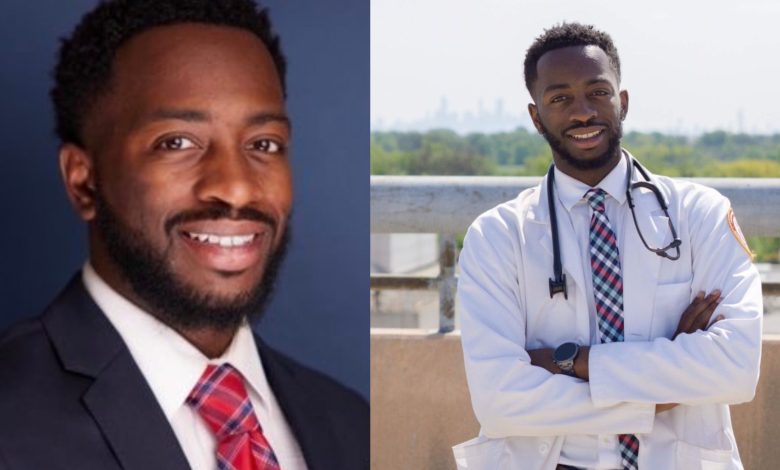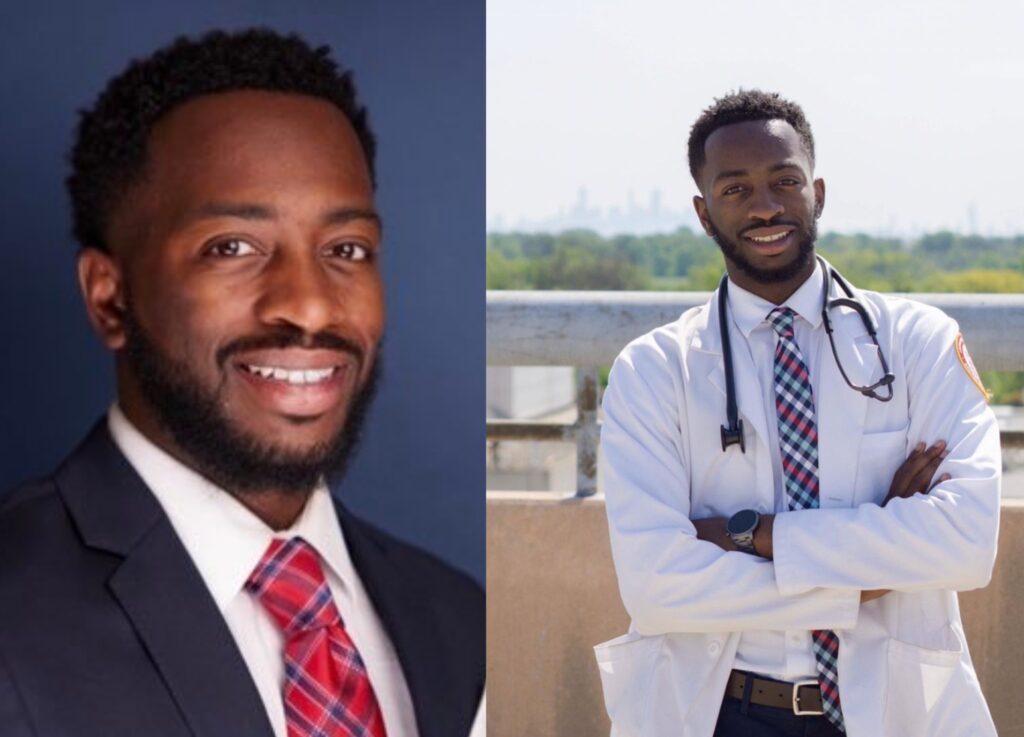5 Questions with Dr. Keven Stonewall on Black Men and Clinical Trials – BlackDoctor.org


Conversations about clinical trials are not particularly the most common topic of discussion for anyone especially among men and in particular, Black men. By fostering dialogue about our health in the Black community we can empower individuals to make informed decisions, learn more about topics such as clinical trials, break down barriers to access and pave the way for a healthier, more equitable future for all.
Clinical trials aim to determine the efficacy and safety of new tests or treatments. Additionally, they may explore enhancements in the quality of life for individuals coping with chronic ailments.
In a study, it was reported that for cancer trials, less than 5 percent of participants were Black men. The higher total aggregate number was dominated by infectious disease trials, in which 17 percent of participants younger than 65 years were Black men, indicating a notable contrast in demographic distribution among various clinical trial categories.
This demographic disparity shows the importance of addressing diversity and inclusion in clinical research to ensure equitable representation from different backgrounds in clinical trials. It helps make sure the results apply to everyone.
For Men’s Health month, we spoke with Keven Stonewall, MD, a resident physician, TEDx speaker, and fervent health tech enthusiast hailing from Chicago, IL. His journey to national recognition began when he embarked on groundbreaking colon cancer research at the tender age of 17. Keven then received his Doctor of Medicine from Loyola University Chicago Stritch School of Medicine.
Today, Keven continues to push boundaries in the realm of health, advocating for preventive care, early detection, and holistic wellness strategies. Through his platform, he educates communities, particularly on the importance of regular check-ups, healthy lifestyle choices, and destigmatizing discussions around medical health.
Keven is also known as a millennial influencer who debunks medical myths. He has garnered numerous accolades, including the POSSE Leadership Scholarship, the Always Giving Back Foundation 2019 Philanthropreneur Award, the Chicago Scholars’ 35 under 35 Award, and the WVON 1690 AM 40 under 40 Game Changer Award. Keven’s dedication to improving the health care system serves as an inspiration for aspiring medical professionals and individuals alike, highlighting the transformative impact of proactive health care initiatives.
Here’s what Keven shared about what Black men can learn about clinical trials:
BDO: You’re known for debunking medical myths. What do you believe are some common misconceptions or barriers that Black men may face when participating in clinical trials? What’s the best way to educate Black men about clinical trials?
Keven: Several misconceptions often deter Black men from participating in clinical trials. One widespread myth is the fear that they may be used as guinea pigs for experimental treatments, a concern deeply rooted in historical events such as the Tuskegee Syphilis Study. These fears are entirely valid and understandable, given the history of misuse and exploitation of Black bodies in medical research.
We must address this elephant in the room and acknowledge that overcoming these fears is an uphill battle. However, through open dialogue and education, we can begin to dispel these myths. It is essential to provide clear, comprehensive information about the purpose, procedures, and safeguards of clinical trials. This can be facilitated through community outreach programs, health information sessions, and even social media platforms, gradually building trust.
BDO: Do you believe increasing diversity in clinical trials, specifically among Black men, can improve health care outcomes?
Keven: The importance of diversity in clinical trials cannot be overstated. A diverse participant pool ensures that the trials’ results represent the broader population, leading to more effective and safe treatments for everyone. Furthermore, genetic variations across different racial subgroups can influence how individuals respond to certain medications. Therefore, having a diverse group of trial participants allows us to understand these variations and develop more personalized treatment strategies. Lastly, it’s worth noting that inclusivity in clinical trials is not just an ethical requirement but a regulatory one as well, with government bodies like the FDA and the NIH requiring diversity in clinical trials.
BDO: From your experience, are there any specific health issues or conditions prevalent in the Black male community that you believe should be the focus of more clinical trials?
Keven: Certain health issues, such as hypertension, diabetes, and prostate cancer, are more prevalent
among Black men. Therefore, I believe more clinical trials focusing on these conditions would be beneficial. It is essential to understand the genetic, environmental, and social factors that contribute to these health disparities, and clinical trials can play a pivotal role in this
BDO: What steps can health care professionals and researchers take to better engage and involve Black men in clinical trials given the historical mistrust and skepticism in the medical field?
Keven: Cultivating trust within the community is a critical aspect of engaging Black men in clinical trials. This journey begins with an authentic acknowledgment of past transgressions committed by the
medical and scientific communities, particularly the historical misuse and exploitation of Black
individuals in medical research. Creating an environment where these difficult truths can be
openly discussed and addressed is crucial.
We need to ensure complete transparency at every stage of the clinical trial. This includes explaining the trial’s purpose, outlining the procedures involved, and discussing potential risks and benefits. It is also vital to be clear about the rigorous safeguards in place to protect participants. These safeguards are derived from lessons learned from past mistakes and enforced to prevent recurrence.
Actively involving community leaders in the planning and implementing trials can foster a sense
of partnership and shared ownership. Their involvement can help bridge the gap between the medical community and trial participants, facilitating better communication and understanding.
In addition, it is important to provide care that respects each participant’s values and
beliefs and is sensitive to their cultural nuances. We need to ensure that, from recruitment to
follow-up, the trial process is culturally appropriate and respectful.
Lastly, we must emphasize our commitment to ethical practices. This includes obtaining informed consent, ensuring voluntary participation, and maintaining the confidentiality of participant information. We also need to highlight that trials are subject to stringent oversight by ethics committees to ensure participant safety and welfare.
By taking these steps, we aim to build a foundation of trust, which is instrumental in encouraging
participation in clinical trials and, ultimately, in addressing health disparities.
BDO: As a Black male physician, what motivated or inspired you to pursue a medical career, and how do you see your role in advancing health care equity and access for Black men and clinical trials?
Keven: As a Black male physician, the driving force behind my pursuit of a career in medicine was the
stark health disparities I witnessed within my community. The desire to effect meaningful change
has always been at the core of my motivation. Medicine, for me, is not just a profession but a platform to advocate for health care equity and access. Yet, my role extends beyond the confines of clinical care. I see myself as an educator and a leader, working diligently to foster more inclusive and equitable clinical trials.
Growing up Black, I have personally experienced deep-seated mistrust towards the medical system. This mistrust is not unfounded but rather an integral part of Black history, rooted in past injustices and exploitation. I believe this personal understanding places me in a unique position to bridge the gap between the medical community and Black men.
My lived experiences offer me profound insight into the fears and concerns of my community, allowing me to approach these issues with a level of authenticity and empathy that goes beyond mere acknowledgment.
In this spirit, I created my Instagram account @thatkevenguy. It serves as an extension of my mission, a digital platform where I can reach and educate a broader audience. Through this account, I am committed to delivering accurate health information, dispelling myths, and breaking down complex medical jargon into understandable language.
My goal is to empower my followers with knowledge so they can make informed decisions about their health.
Thus, my mission is not just to inspire trust but to work tirelessly to ensure that trust is deserved.
To do so, I am committed to promoting transparency, enforcing ethical practices, and ensuring
that the lessons of history guide our path towards a more equitable health care future. This journey, I believe, is not a solitary one but a collective effort. Through platforms like @thatkevenguy, I hope to inspire, educate, and lead the way for a healthier, more informed community.




